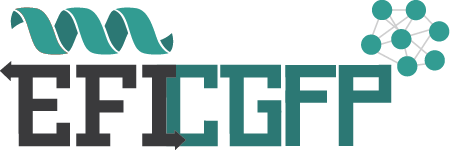EFI - Chemically-Guided Functional Profiling
This web resource is supported by a Research Resource from the National Institute of General Medical Sciences (R24GM141196-01).
The tools are available without charge or license to both academic and commercial users.
This site uses the CGFP-ShortBRED programs (https://github.com/biobakery/shortbred and http://huttenhower.sph.harvard.edu/shortbred).
For more information on CGFP-ShortBRED, see
Levin, B. J., Huang, Y. Y., Peck, S. C., Wei, Y., Martínez-del Campo, A., Marks, J. A., Franzosa, E. A., Huttenhower, C., Balskus, E. P.
A prominent glycyl radical enzyme in human gut microbiomes metabolizes trans-4-hydroxy-l-proline.
Science 355, eaai8386 (2017).
(DOI: 10.1126/science.aai8386)
For more information on ShortBRED, see
Kaminski J., Gibson M. K., Franzosa E. A., Segata N., Dantas G., Huttenhower C.
High-specificity targeted functional profiling in microbial communities with ShortBRED.
PLoS Comput Biol. 2015 Dec 18;11(12):e1004557. DOI: 10.1371/journal.pcbi.1004557
These programs use data computed by MicrobeCensus.
Nayfach, S. and Pollard, K.S.
Average genome size estimation improves comparative metagenomics and sheds light on the functional ecology of the human microbiome.
Genome Biology 2015;16(1):51.
Portions of the metagenome data used on this site come from the Human Microbiome Project.
The Human Microbiome Project Consortium. Structure, function and diversity of the healthy human microbiome.
Nature 486, 207-214 (14 June 2012). DOI: 10.1038/nature11234
The Human Microbiome Project Consortium.
A framework for human microbiome research.
Nature 486, 215-221 (14 June 2012). DOI: 10.1038/nature11209
Click here to contact us for help, reporting issues, or suggestions.


